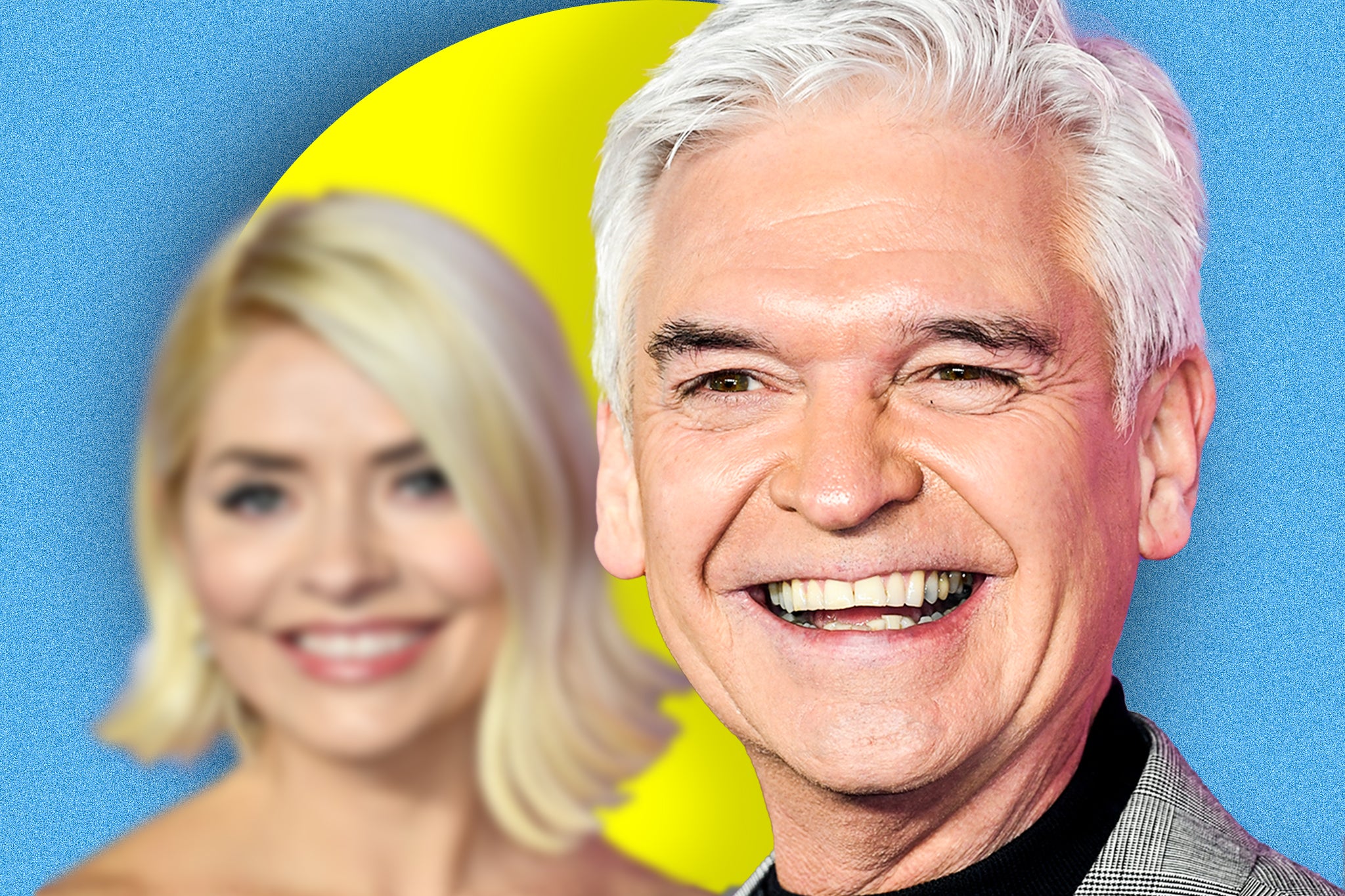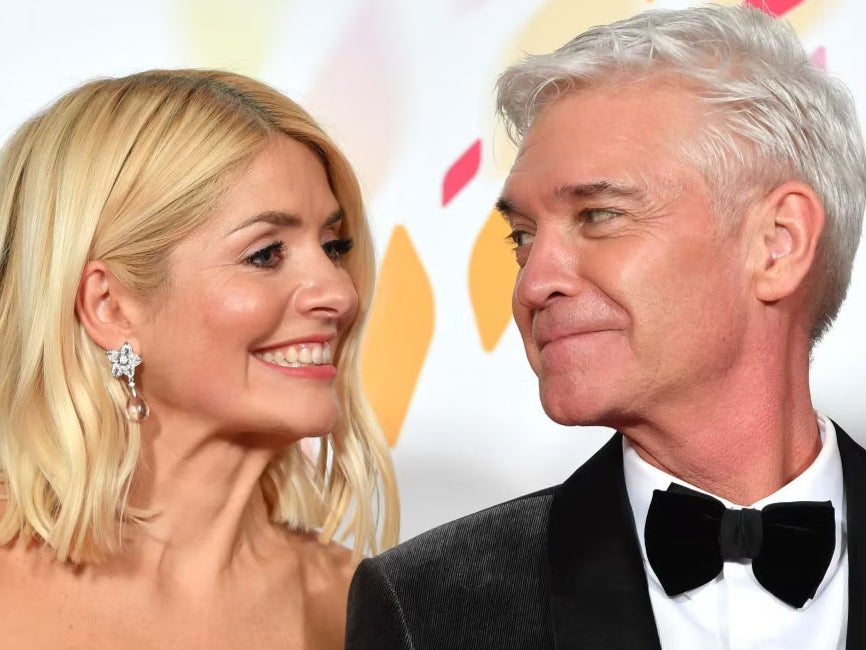When Phil unfollowed Holly: Why social media splits show how we really feel about each other
Months after leaving his presenting gig on ‘This Morning’, Schofield has finally unfollowed his former co-host on Instagram. It’s a deliberate full stop in any friendship – but is it the power move we think it is, asks Katie Rosseinsky?


With the tap of a smartphone screen, Phillip Schofield has brought his 17-year friendship with Holly Willoughby to a decisive end. In May, the presenter stepped down from his role on This Morning, the show he had co-hosted with Willoughby since 2009, after admitting he had lied about an affair with a young colleague. Since then, British TV’s foremost presenting partnership (bar Ant and Dec, perhaps) has been estranged: Willoughby distanced herself from her one-time best pal in a curt statement describing his lie as “hurtful”.
But perhaps the biggest sign that things are irrevocably broken between the pair came on Tuesday, when it emerged that Schofield had – gasp! – unfollowed the woman he once described as his “rock”. He did so just before the National Television Awards, an event the pair attended together in happier times. Coincidence? I think not. When it comes to an unfollowing like this, everything is deliberate: Schofield has probably been pondering about when best to strike this blow for a while now (although there is still an outside chance he got fed up of Holly posting about crystals and plugging her lifestyle site, Wylde Moon).
For a pair whose friendship played out on Instagram and Snapchat, in beach selfies posted from joint family holidays, in videos of backstage antics and in messages of support shared online, this move feels particularly stark. Yes, it might seem trivial, but in the social media age, it’s big news when a celebrity hits “unfollow” – it sends a definite and deliberate sign to us mere mortals that something has gone seriously awry (stars and their agents will be well aware that pressing the fateful button guarantees some form of press coverage, so if they really wanted it to stay private, they’d arguably just leave things as they were).
You can usually tell when, say, the latest cohort of Love Island stars have decided to call time on their relationships when each party decides to opt out of the other’s social media presence. Or when news of an A-list break-up makes headlines, a quick glance at their friends’ follow lists can speak volumes. After rumours surfaced in spring that Taylor Swift and Joe Alwyn’s six-year relationship was over, fans noticed that various members of her inner circle, from the Haim sisters to Gigi Hadid to Ryan Reynolds, had unfollowed the British actor on Instagram, a simple, brutally efficient signal of their loyalties.
Of course, a cull like this isn’t just something that celebrities do: many of us will choose to unsubscribe from an ex’s digital updates (who wants to be confronted with the filtered proof that they’re doing really well, actually?). But just as the rules for a friendship break-up are murkier than the well-established rubric for the end of a romantic relationship, the etiquette for unfollowing a former pal is altogether more complex.
Unlike Holly and Phil’s high-profile partnership, our friendships are more likely to fizzle out than blow up, in the form of mutually agreed ghosting. Pressing unfollow feels like the digital equivalent of walking past someone in the street and outright ignoring their greeting. It can also be pretty hurtful for the person on the receiving end. You might not receive a notification when someone opts to de-friend you (we can be thankful for the fact that our social media overlords have not yet introduced what would be a truly devastating feature), but the chances are that you will discover it for yourself soon enough.
In pressing “unfollow”, you are effectively saying that you want to unsubscribe from someone’s life
The realisation might come when you accidentally click on their profile and see the tell-tale padlock sign, perhaps, or when you start to wonder why the bombardment of pictures of their dog and/or baby (delete as appropriate) has come to an abrupt end. In her book Friendaholic, the writer Elizabeth Day recalls how she “gasped” after realising that a once-close friend had chosen to cut her off digitally.

Day describes the move as “an active statement of intent”, one that “seemed so outrageously final”. She’s right: in pressing “unfollow”, you are effectively saying that you want to unsubscribe from someone’s life, and that is hard to come back from. Whether or not the unfollower in question is someone that you genuinely care (or once cared) about, it can still give you pause. What did I do? Were my stories truly that tedious? What was the post that prompted them to take decisive action? And have they hated me all this time?
I can still remember the slight pang that came after noticing that one university acquaintance had un-friended me a year or so after graduation, while choosing to stay in Facebook contact with the rest of our circle. Were we close? No. Did it still hurt? Yes. (Although for some reason, she decided to remain as a connection on LinkedIn; perhaps one day I will endorse her for communication or interpersonal skills.)
Cutting someone out of your digital life might seem tempting in the heat of the moment; I’m sure Schofield thought that hitting unfollow on Willoughby might be a way of wresting back control of their friendship’s narrative, of finishing it before she had the chance to do so. The real power move, though, is pressing mute – removing their updates from your feed, without having to let the other person know that you have been stewing over them. I imagine Willoughby has already done so. It’s a more passive and less aggressive way of opting out. And crucially, it leaves the door open for potential reconciliation too – because being unfollowed might be embarrassing, but so is having to come crawling back to hit “re-follow” when you’ve made up a few years down the line.



Join our commenting forum
Join thought-provoking conversations, follow other Independent readers and see their replies
Comments